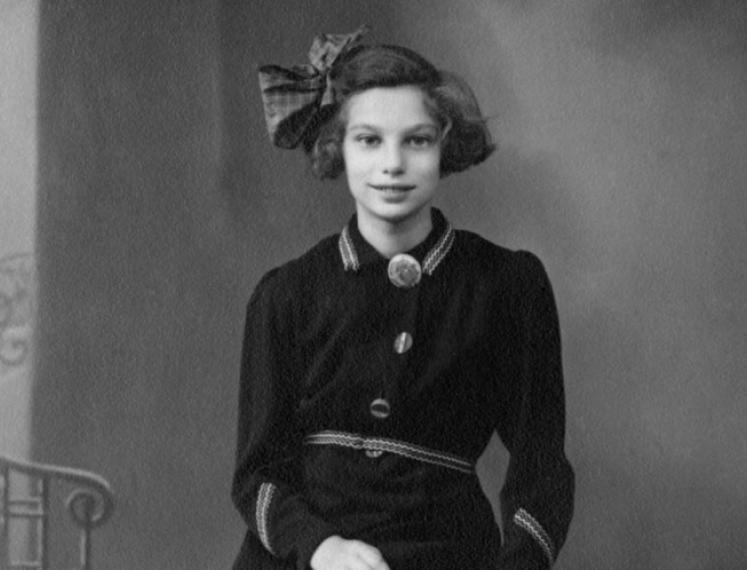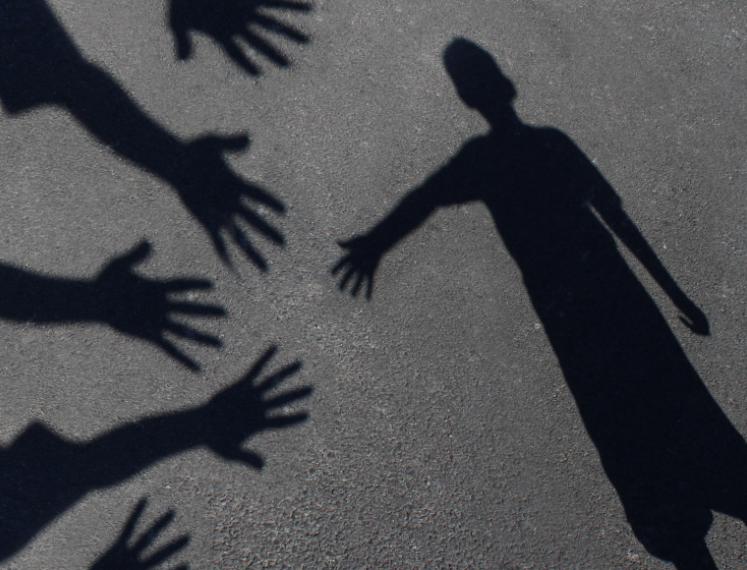
Memories of a War
On May 13th Lien de Jong, Jewish war survivor and main character from the book The Cut Out Girl, was our guest in the first online book club of Studium Generale Groningen and City Central. This book club was organised as a warm up to our brand new series Meet the Dutch. According to Lien we can ask her anything about her life story, written by author Bart van Es. So we did...
How did it all start? Lien got an email from Bart and she invited him over for a cup of coffee. He was curious to find out more about his own family history: Lien was of special interest to him as she was the foster child of his grandparents. Their home was her first hiding place during WWII. After the war, Lien returned to Bart’s family and they took her in as a foster child.
When Bart and Lien met for coffee, she had no idea that this meeting would turn into the successful book The Cut Out Girl. Bart took a real personal interest in her story and was very much involved in finding out every detail: from what places looked like to what she had for dinner. Lien was at peace with her memories of the war, but she was not used to talking about them in such detail. ¨I only talked about it with my children if they asked questions”. Did her conversations with Bart trigger new memories? She doesn’t think new events sprang to mind, but asking questions about the details made her think and talk about her past more.
Lien describes the making of The Cut Out Girl as a collaboration, a very good one for that matter. If Bart wrote something, she would read it and they would talk about it together. Of course she would have described things differently than he did, but according to Lien this is the author’s freedom.
Bart investigated the places she had been, interviewed people she had met. Some of these people she doesn’t remember at all today, although Lien made a big impression on them back then. How come? Lien explains that, over time, she connected less with her environment to protect herself. At her first hiding place, at the Van Es family, she was still able to be a child. Later on she felt more like she had to survive. Being less connected to the experiences influenced her memory of them.
To Lien, her story shows that the line between good and bad is fuzzy. Good people were able to do very bad things, while unpleasant people were brave enough to offer her a hiding place during the war. Another important lesson she learned is that you can live your life, despite your traumatising memories. They give you life experience, but they don’t need to determine who you are.
Her daughter told Lien she was lucky. She never thought of it that way, but she feels lucky in some respect. It's not easy to be one of the few survivors of the war, but she feels lucky to have met people who took care of her and protected her, who gave her strength and trust.
Remembrance Day and Liberation Day were recently commemorated. What do the 4th and the 5th of May mean to Lien? The actual liberation in 1945 meant very little to her, nothing really changed. Nowadays, she thinks it is important to pay attention to it. She especially liked Arnon Grunberg’s speech on the 4th of May, because he showed us that we should always be alert for discrimination, also in today’s society
We thank Lien for sharing her story with us. This autumn she will be back during Meet the Dutch | Perceptions of World War II: a conversation on how WWII influenced Dutch culture and how films and books about the war influenced Dutch perception on the war. Next to Lien de Jong, we will speak to historian Hans Renders (University of Groningen) and art historian David Stroband (Minerva Art Academy).
Curious about Lien’s story?
The Cut Out Girl - Bart van Es | English version (original) | Boekhandel Van der Velde
Vergeet mij niet - Bart van Es | Dutch version (translation) | Boekhandel Van der Velde
Or watch the recording of the Online Book Club here (partly in Dutch).
This online book club was organised by Studium Generale Groningen and City Central in collaboration with Boekhandel Van der Velde.


